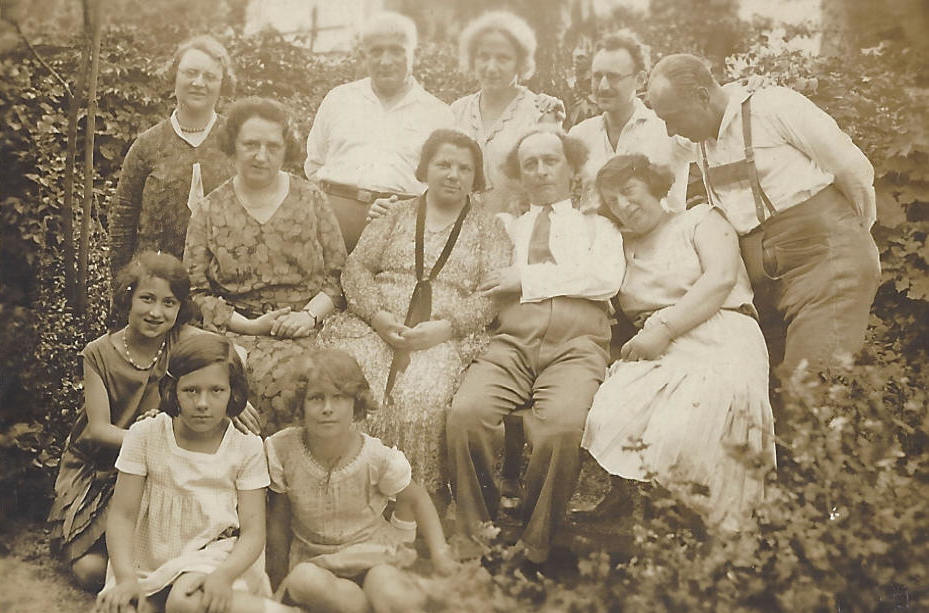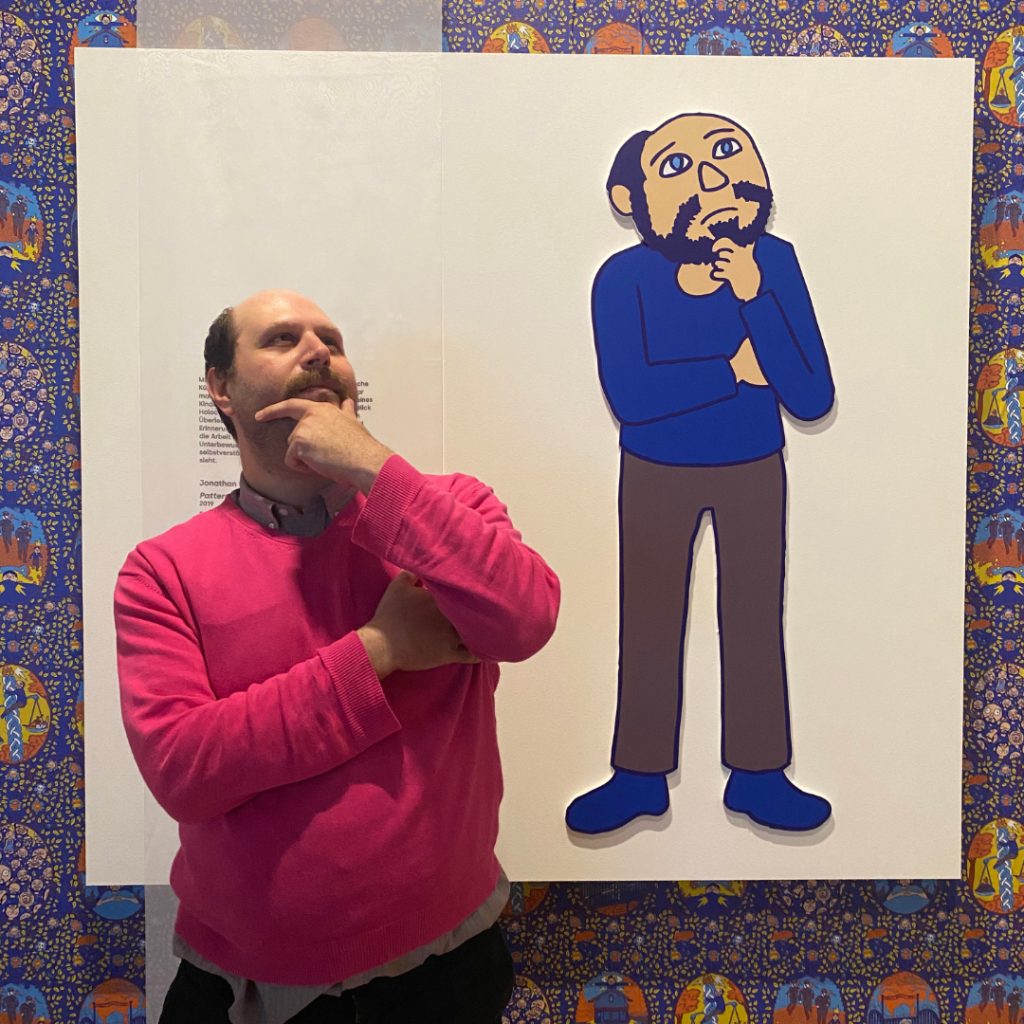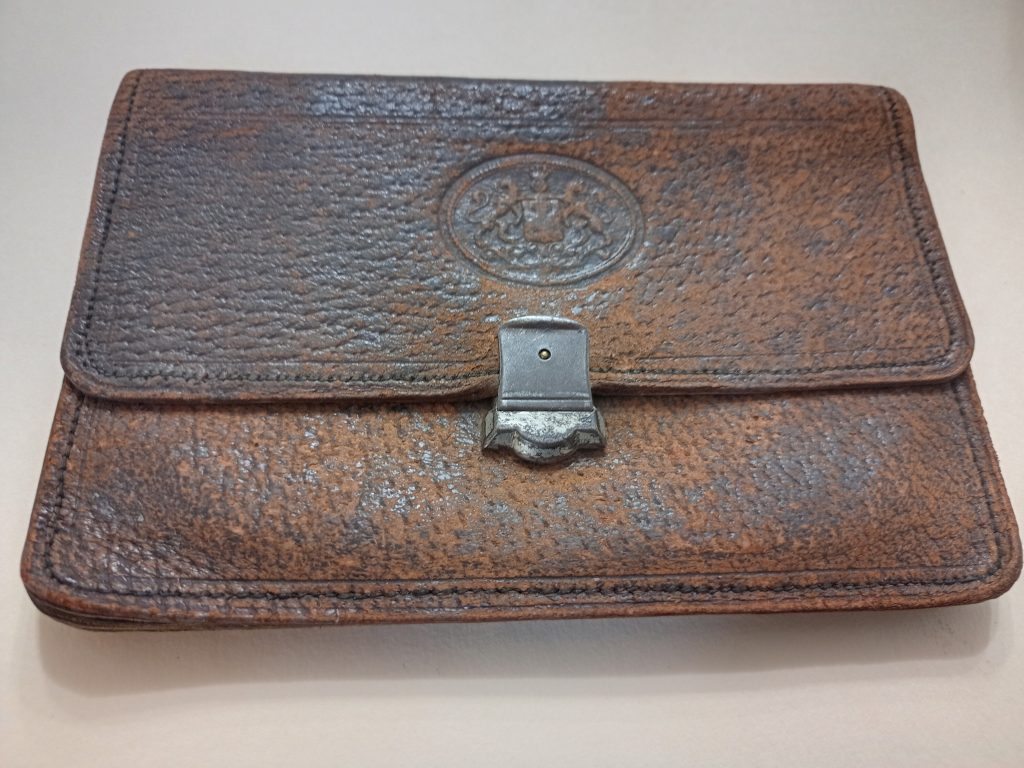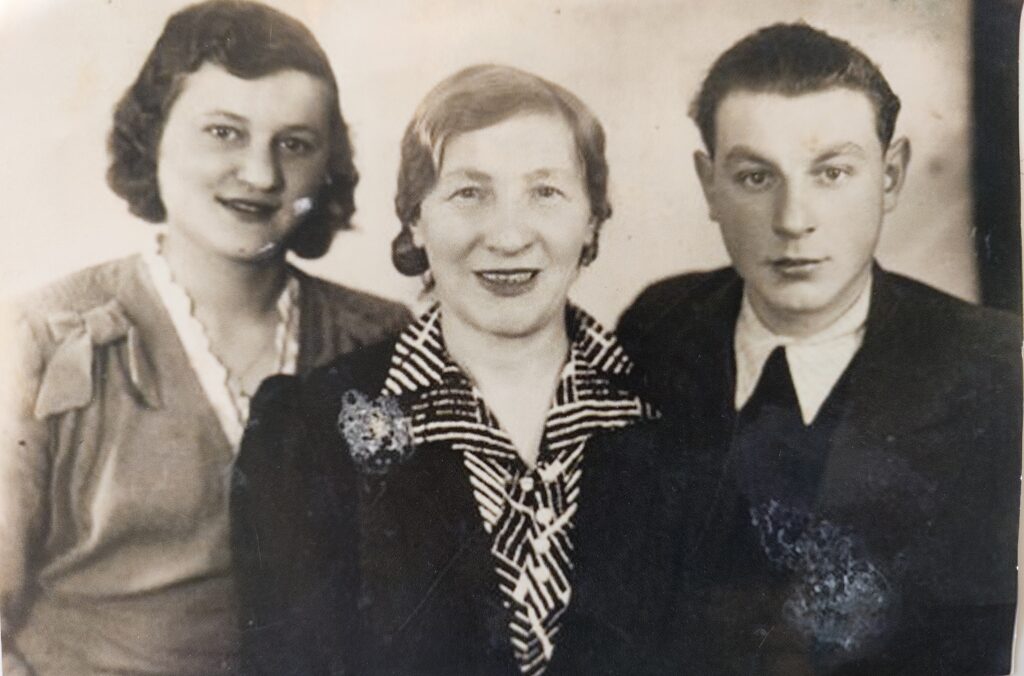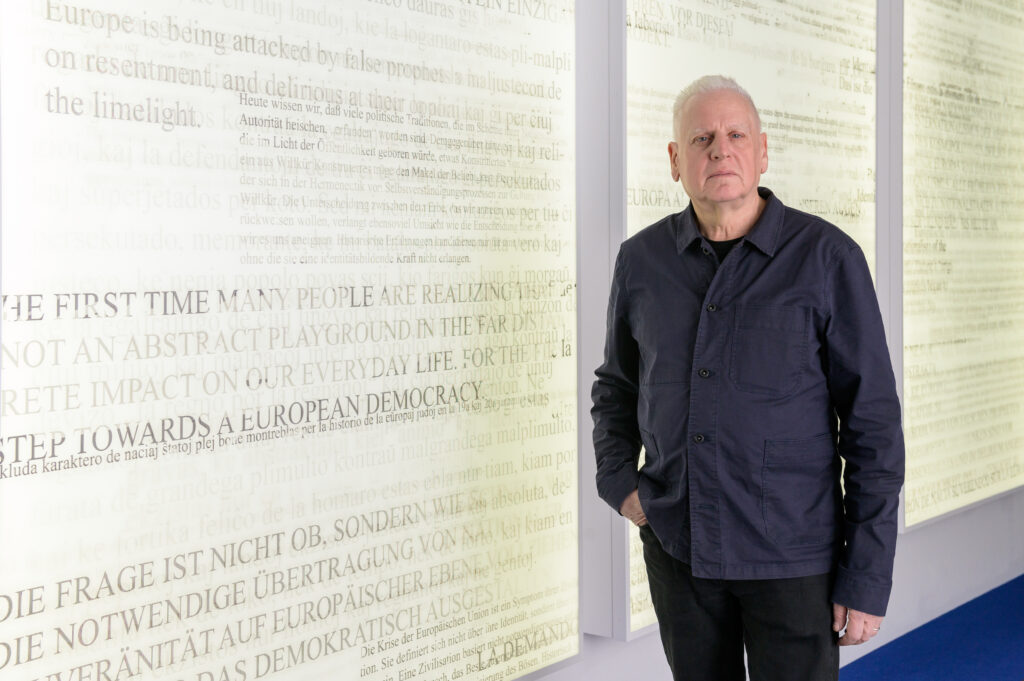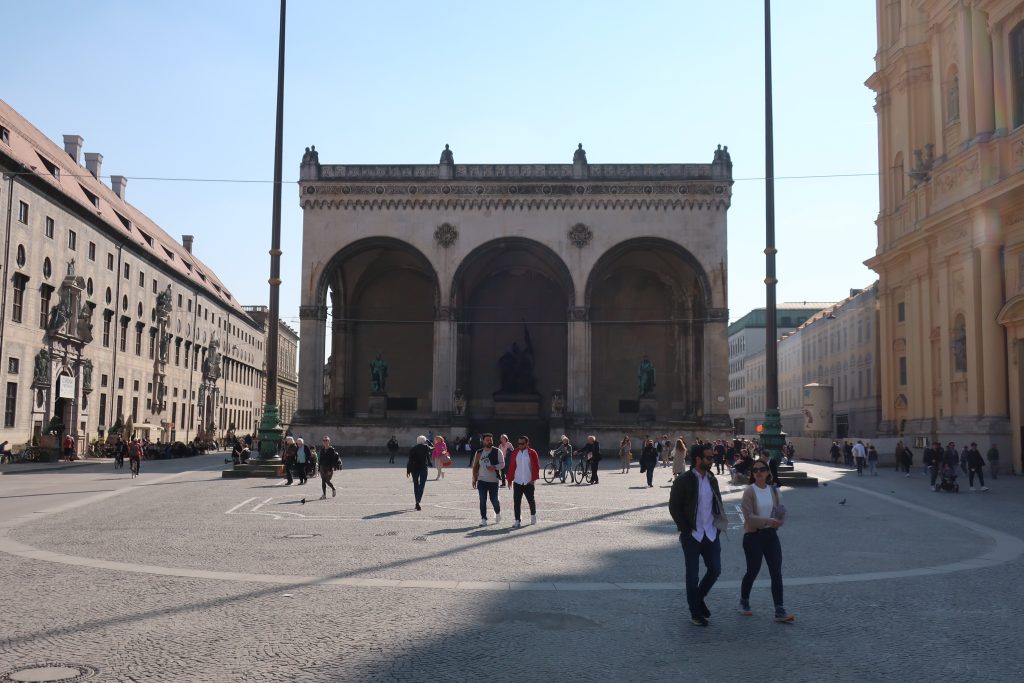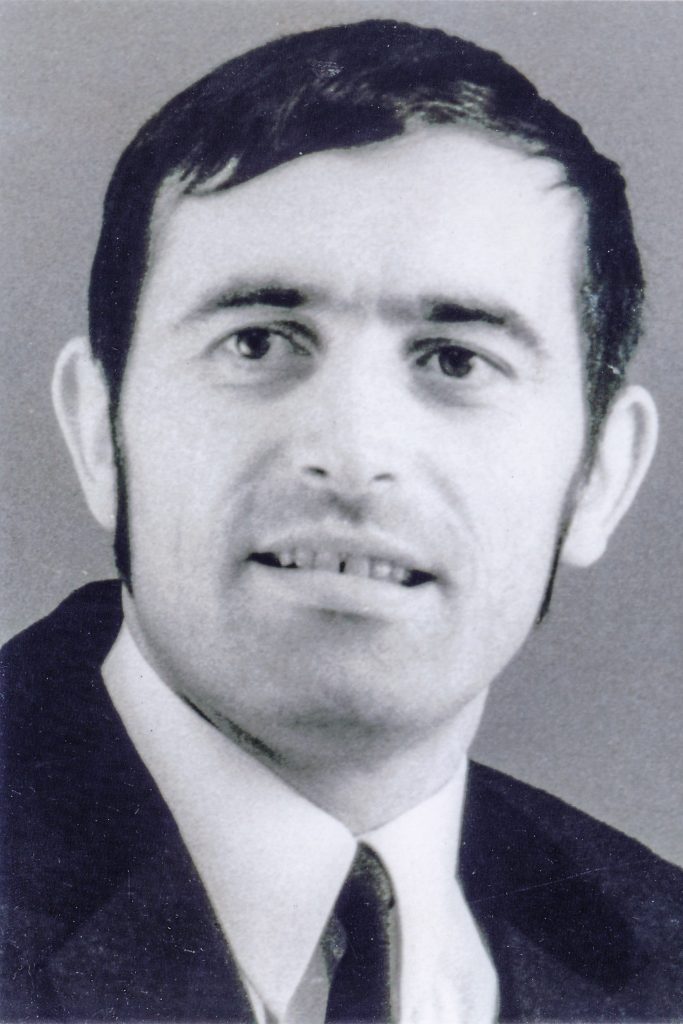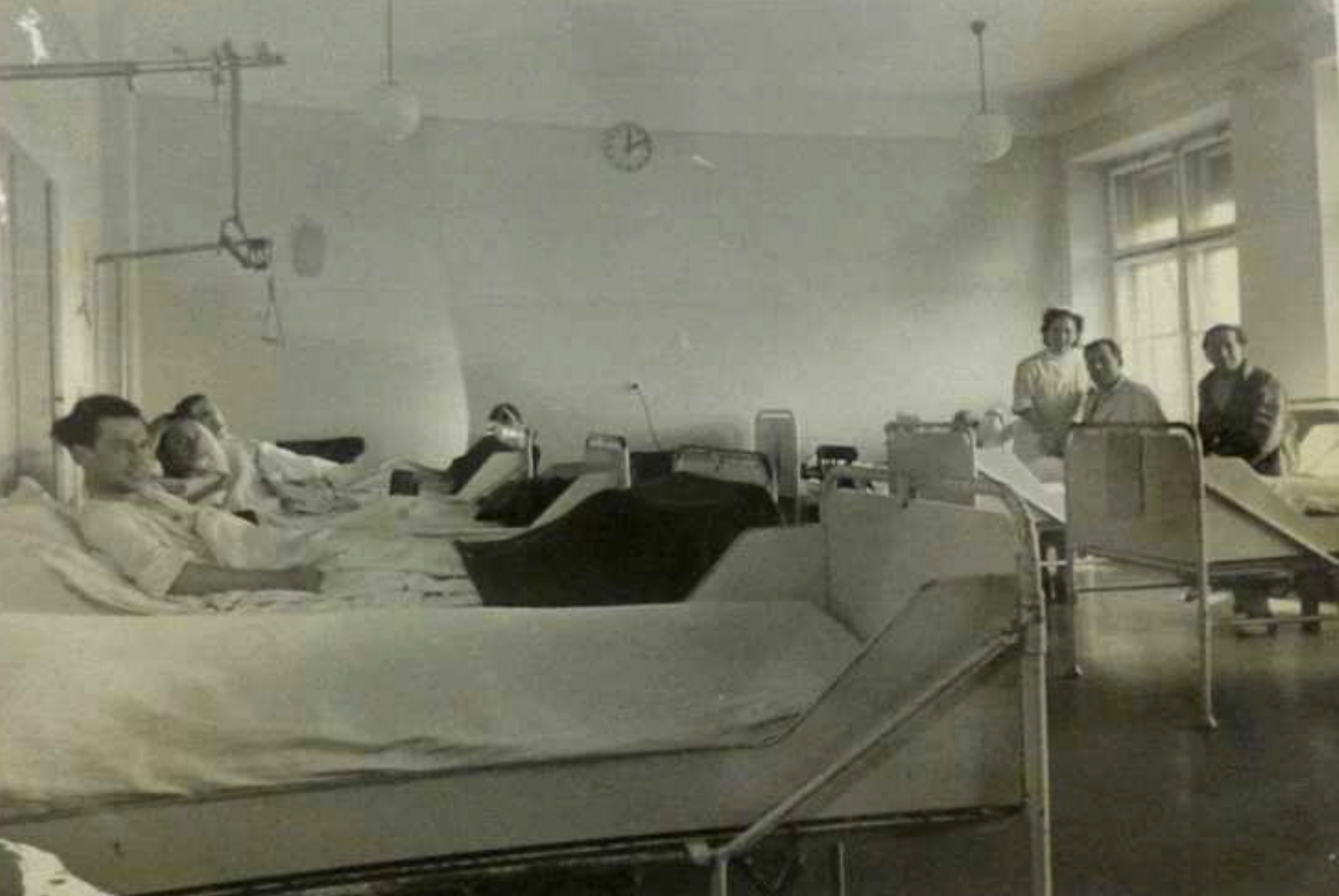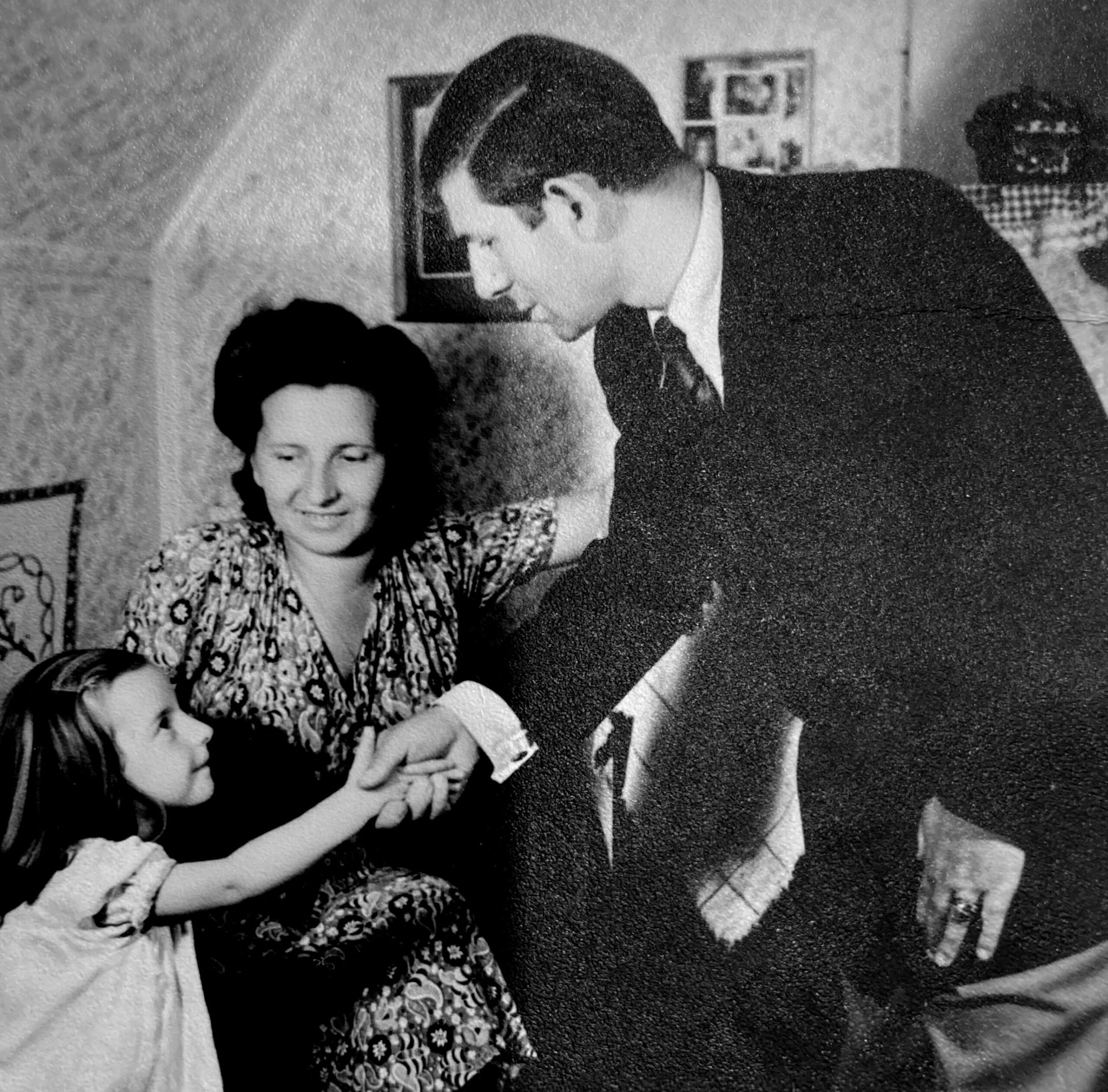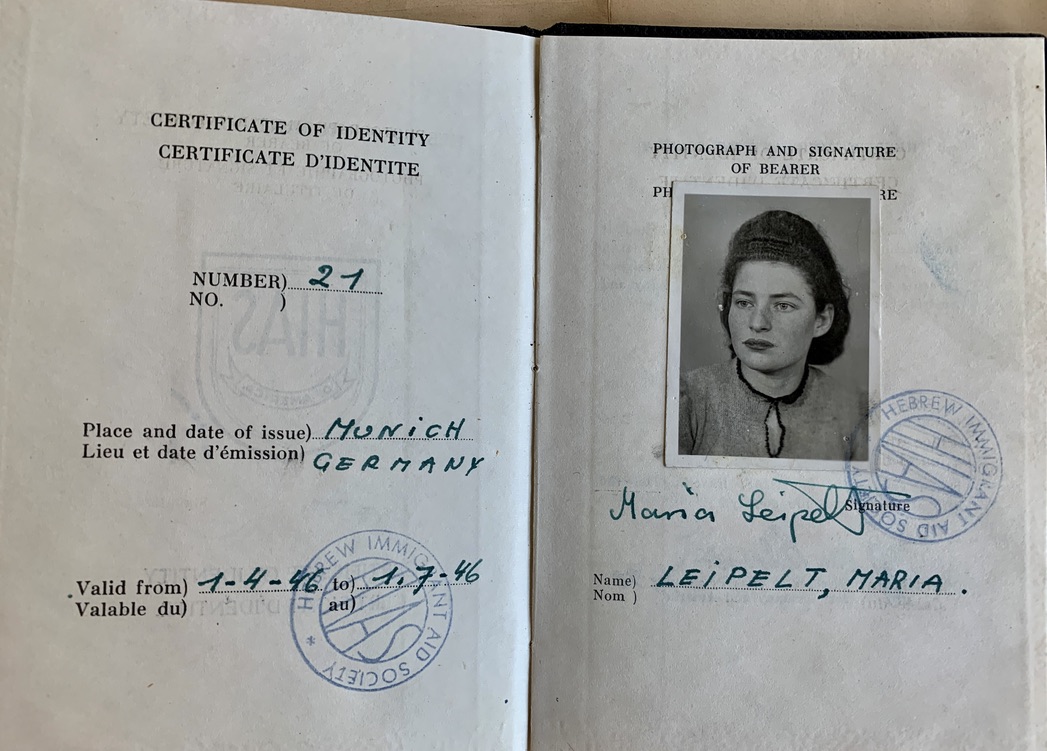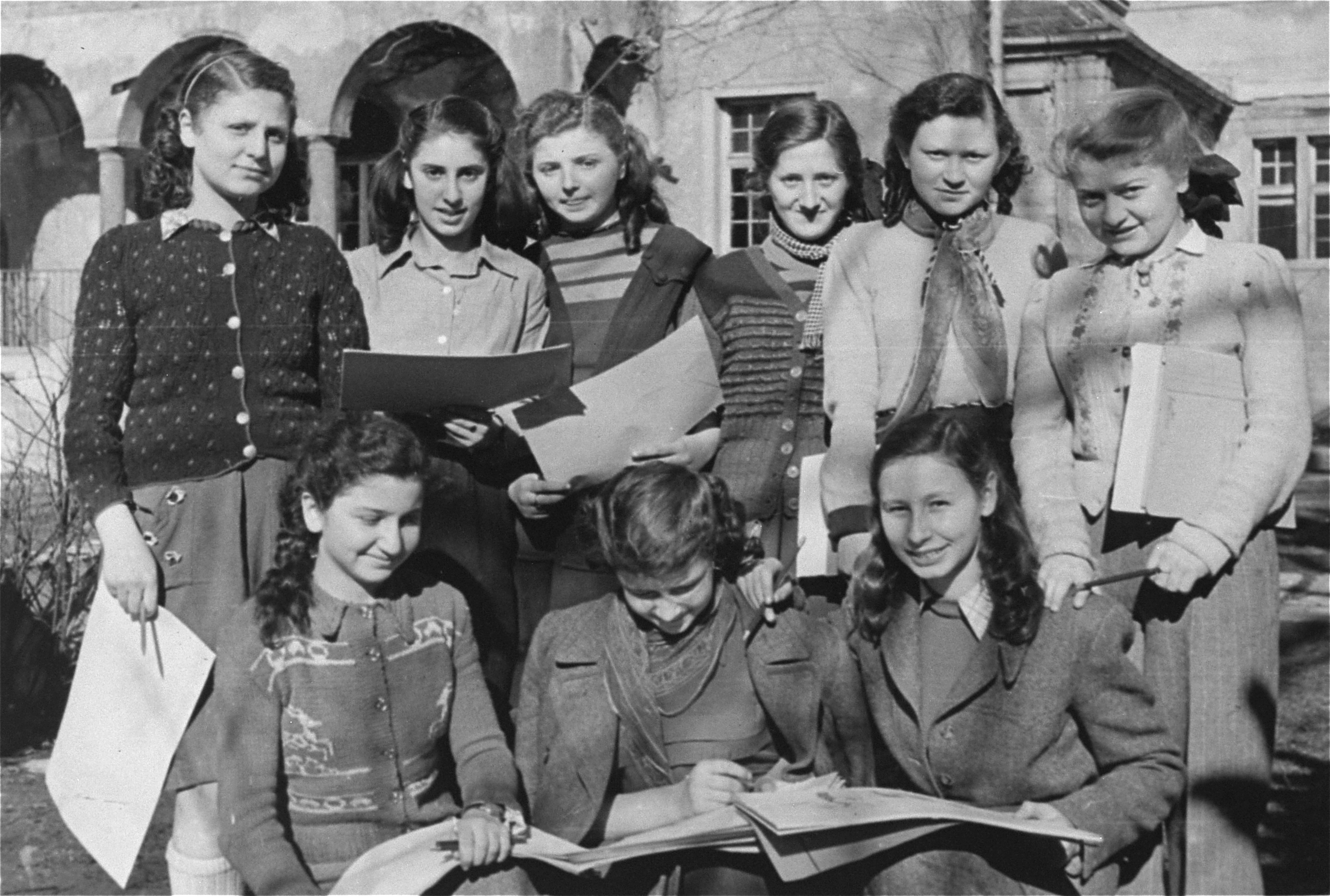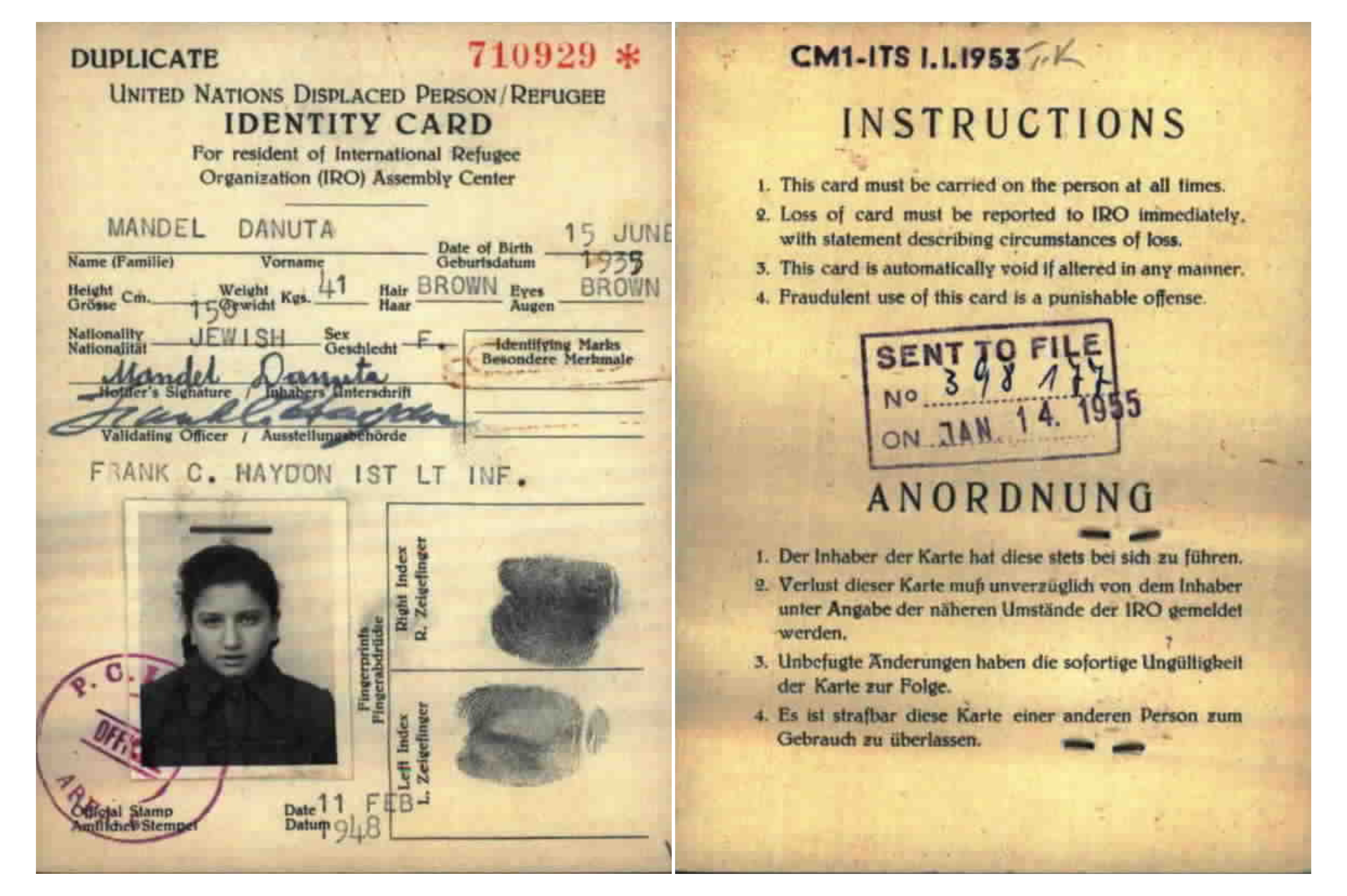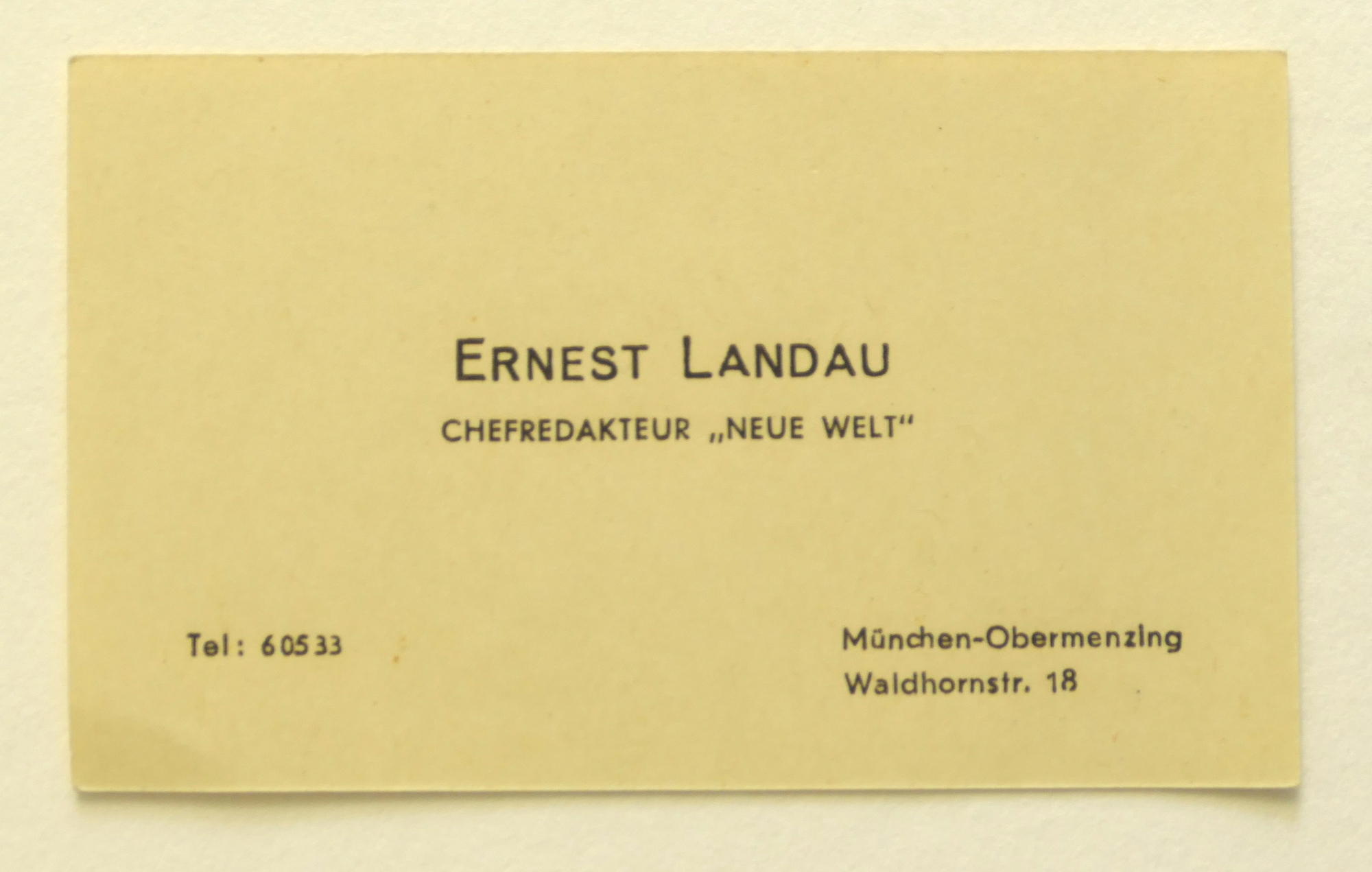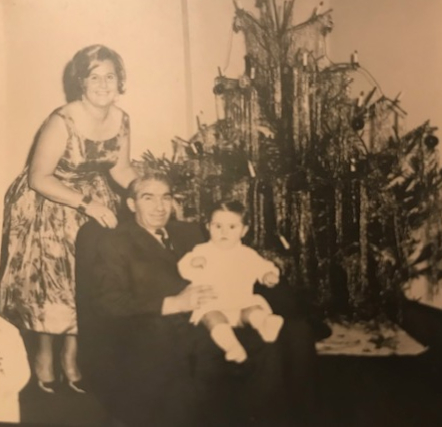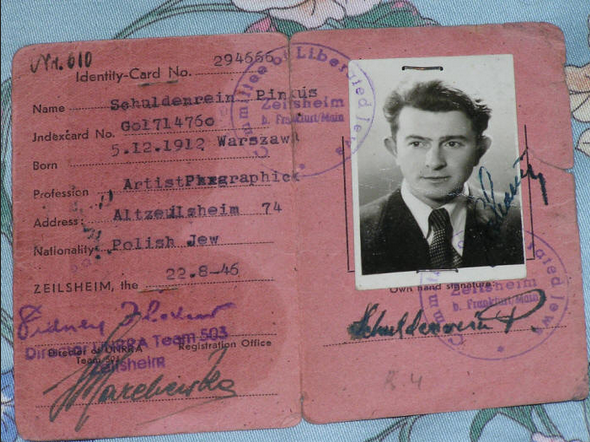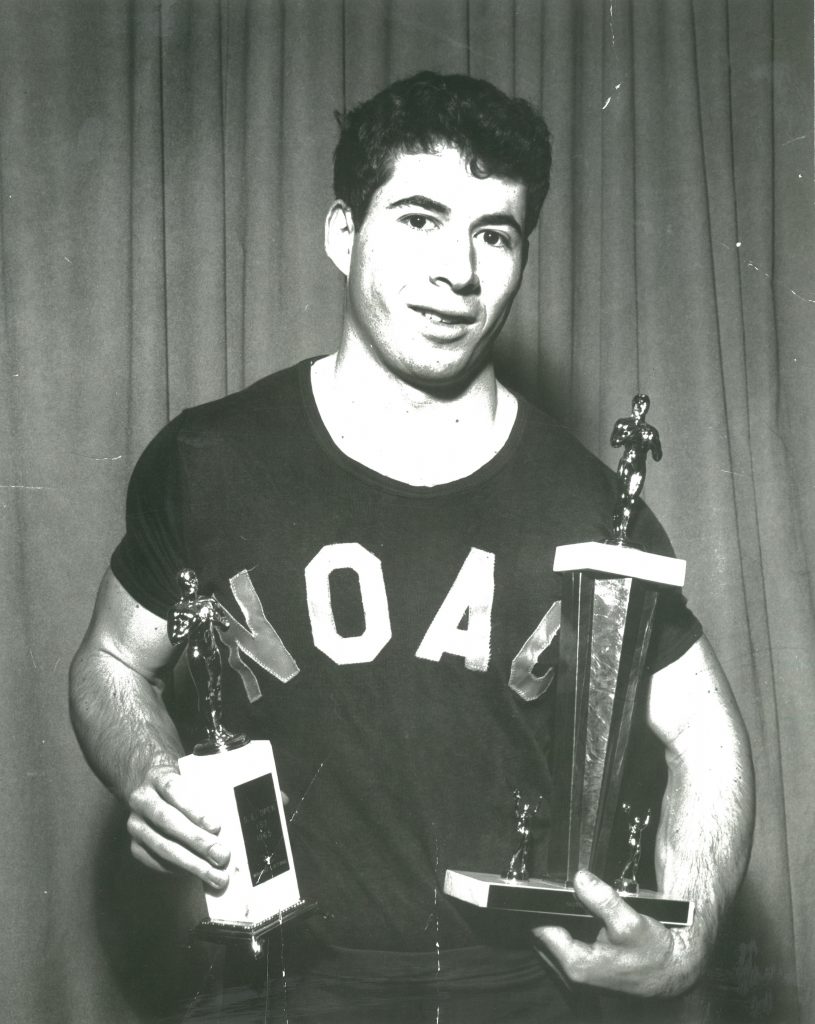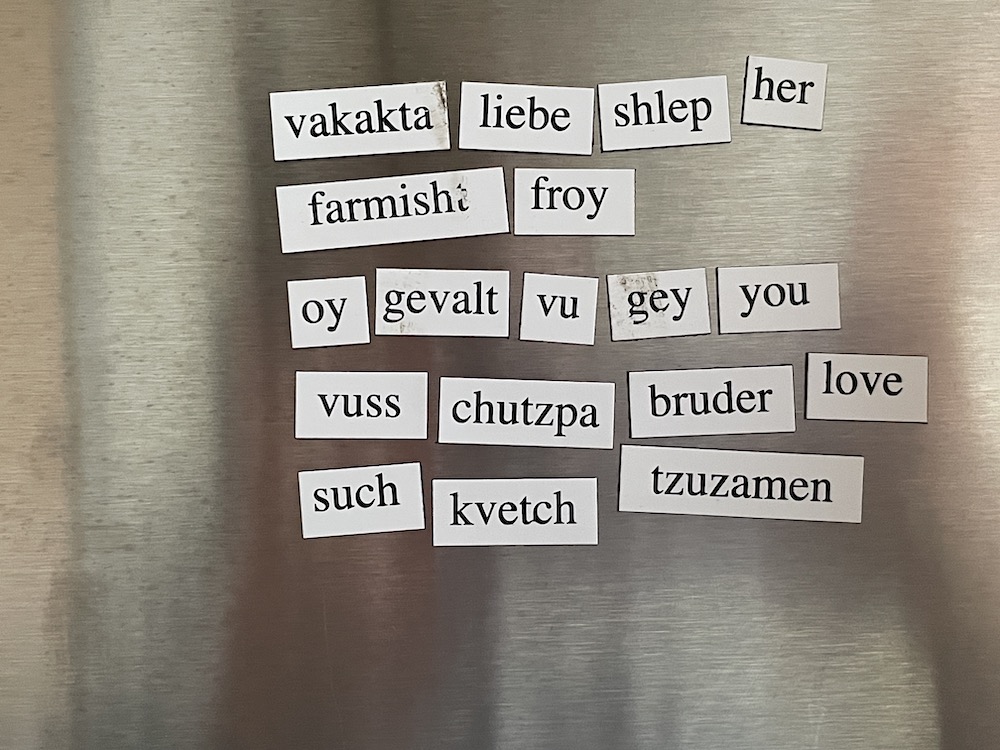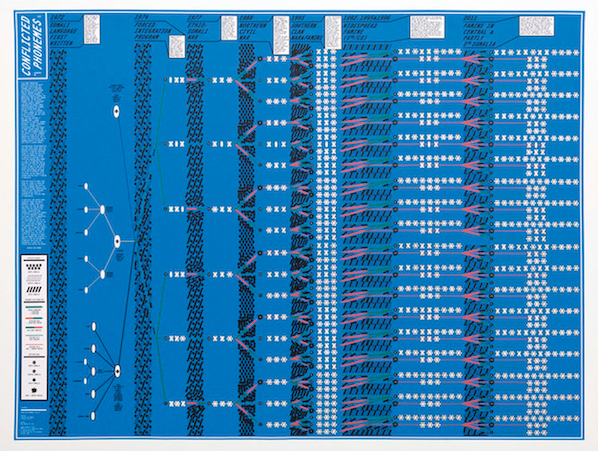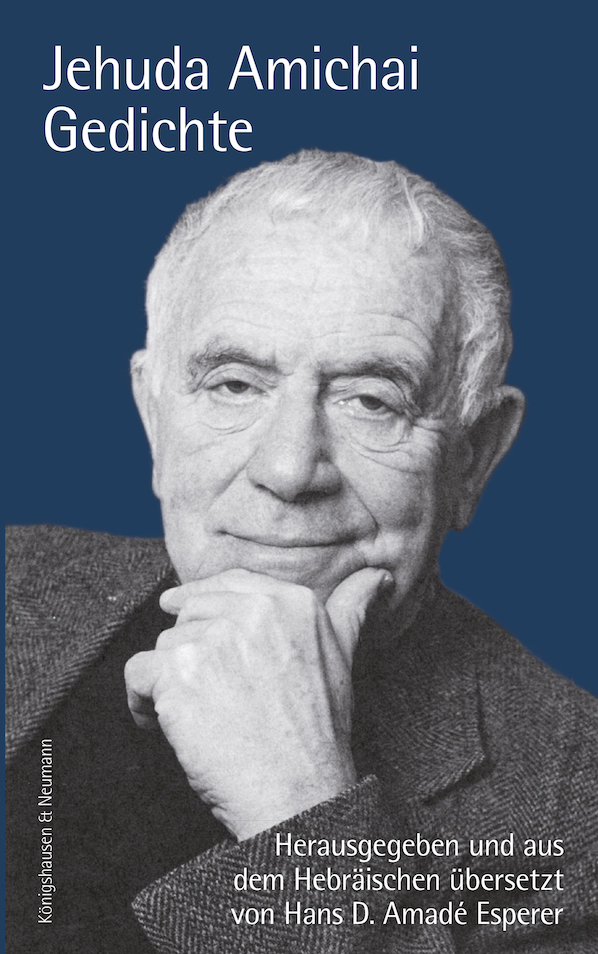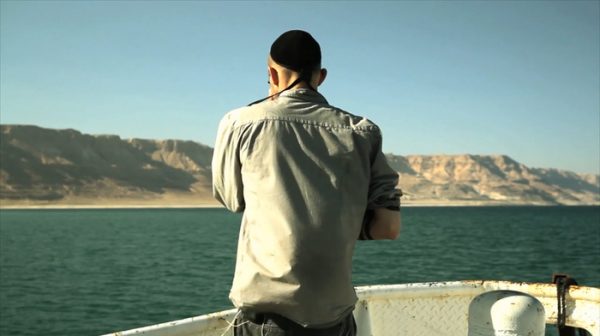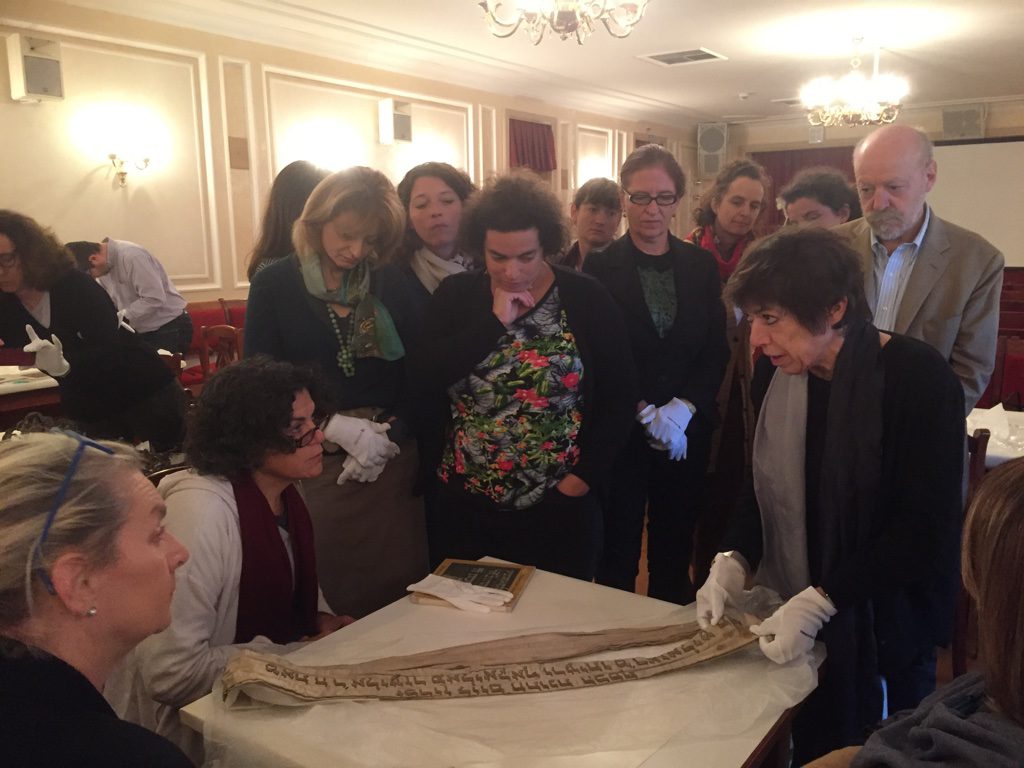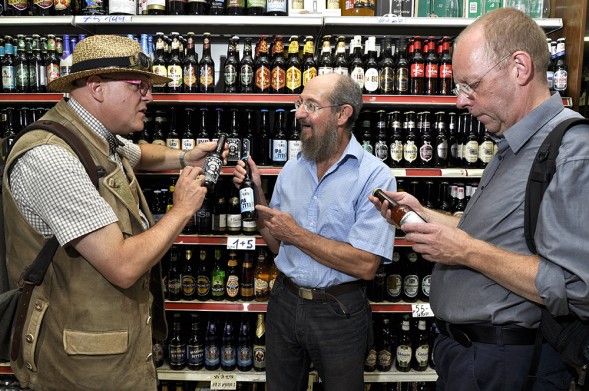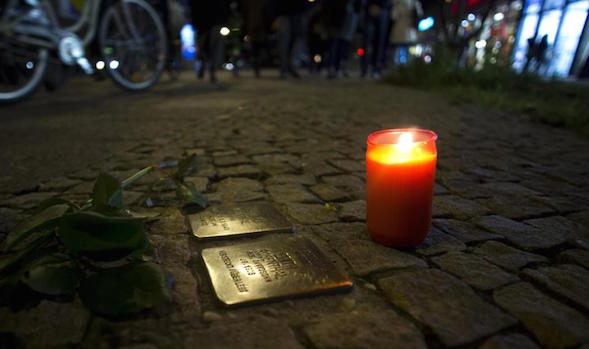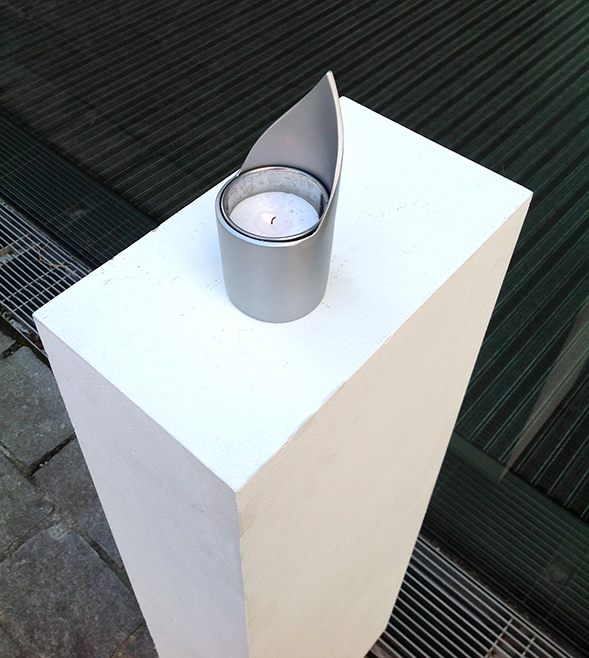The exhibition “The Third Generation. The Holocaust in Family Memory” explores various strategies for dealing with and examining the legacy of the Holocaust within survivors’ families. Inherited objects, family archives or photographs are often the vehicles for this inter-generational encounter. We asked our online community which object they would have chosen for the exhibition and what story they connect with it. Computer Science and Engineering Professor Martin Tompa chose a family photograph from Vienna taken prior to the outbreak of the war.
# english
#ThirdGeneration: Jonathan Rotsztain
Jonathan Rotsztain is a Toronto-based writer, cartoonist and graphic designer. In our current exhibition he presents his artwork Patterns, an installation that was first shown at Toronto’s FENTSTER Gallery. It thematizes the invisible influences that shape patterns of behaviour and intergenerational trauma and is part of his broader project Self-Loving Jew.
Leather File Folder, Used During the Family’s Escape
The exhibition “The Third Generation. The Holocaust in Family Memory” explores various strategies for dealing with and examining the legacy of the Holocaust within survivors’ families. Inherited objects, family archives or photographs are often the vehicles for this inter-generational encounter. We asked our online community which object they would have chosen for the exhibition and what story they connect with it. Author and researcher Anne Hand picked a leather file folder that her family used during their flight from Austria.
Update Munich Displaced // A Munich Displaced Person: Dr. Leon Wasser
In her guest article, Prof. Shulamit Almog from Haifa University traces the story of her father Dr. Leon Wasser, who came to Munich as a displaced person in 1945 and studied dentistry here.
Beliebte Hashtags:
Update Munich Displaced // Film as Relief in Postwar Munich
Munich’s DP camps, and nearby communities, were places of succor, solace and hope for tens of thousands of Jewish Holocaust survivors after the Second World War. Among the many types of humanitarian „relief supplies“ provided to DPs were film screenings provided by the American Jewish Joint Distribution Committee. Simone Gigliotti explores the challenges of mounting and delivering this little-known film programme.
Arnold Dreyblatt und die letzten Europäer
Für die Ausstellung „Die letzten Europäer. Jüdische Perspektiven auf die Krisen einer Idee“ im Jüdischen Museum München hat Arnold Dreyblatt eine neue textbasierte Installation geschaffen. Wir haben mit ihm über seine künstlerische Praxis, die letzten Europäer_innen und die Kunstsprache Esperanto gesprochen.
Run-ins with liminal spaces in Munich
One way to speak on the abundance of sites in Munich that were once integral parts of Nazi history is likening them to liminal spaces. Liminal spaces are those that exist on a threshold between time and space. A threshold that, depending entirely on the subjectivity of the viewer, is prone to slippage between then versus now, tales versus truth, and familial or socio-cultural memory versus personal experience.
Zwölf Monate – Zwölf Namen: Anton Fliegerbauer
Unter dem Titel „Zwölf Monate – Zwölf Namen“ stellen wir 2022 jeden Monat ein Opfer des Olympia-Attentates 1972 vor. Im Februar gedenken wir dem Polizisten Anton Fliegerbauer. Aufgewachsen in Niederbayern, lebte er mit Ehefrau Maria und dem gemeinsamen Sohn Alfred in München. Er starb im Dienst als Städtischer Polizeiobermeister Münchens auf dem Fliegerhorst Fürstenfeldbruck bei dem Versuch die israelischen Geiseln zu befreien.
#München Displaced ONLINE
Zwölf Monate – Zwölf Namen: David M. Berger
Zum 50. Jubiläum der Olympischen Spiele in München soll 2022 ganzjährig an das Olympia-Attentat am 5.-6. September 1972 erinnert werden, bei dem elf Athleten des israelischen Olympia-Teams und ein deutscher Polizist getötet wurden. Unter dem Titel „Zwölf Monate – Zwölf Namen“ stellen wir jeden Monat ein Opfer vor. Im Januar gedenken wir dem Gewichtheber David Mark Berger.
Nokh a lebedike shprakh, still a thriving language
Yiddish, the language of Ashkenazi Jews, is spoken by an estimated 500,000 to one million people worldwide. At least 150,000 of these individuals are in North America and 85,000 are in New York alone, making the United States one of the most active speech loci of Yiddish to date.
Say Schibboleth! On Visible and Invisible Borders: Lawrence Abu Hamdan
Last week Beirut-based artist Lawrence Abu Hamdan (b. 1985), was awarded the British Turner prize, marking the first time the prize will be shared among all four nominees.
Das Jüdische Museum München auf Instagram - @juedischesmuseum
Jehuda Amichai, der »post-zynische« Dichter des Mitgefühls. (English Version below)
Jehuda Amichai wurde am 3. Mai 1924 als Ludwig Jehuda Pfeuffer in Würzburg geboren. Im Sommer 1936 musste er als zwölfjähriges Kind mit seiner jüdisch-orthodoxen Familie nach Palästina auswandern, nachdem der Terror des Nationalsozialismus auch in Würzburg immer deutlicher spürbar wurde.
Flood – ein Dokumentarfilm von Ohad Milstein über die kostbare Ressource Wasser im Rahmen des Dok.fest zu Gast im Jüdischen Museum München
Jewish Museum Munich: In the past you successfully showed your movies at Israeli festivals. What does it mean to you that your latest work is premiering in Germany? What do you expect from the Munich audience?
AEJM curators visit Saint Petersburg
Curators from 12 different countries were represented when the Advanced Curatorial Education Programme for the first time took place in Russia in September 2016. During the five-day programme, the group was able to explore a wide variety of collections and exhibitions across the former imperial city of St Petersburg. Local guides, curators and directors welcomed the group warmly, and generously shared their time and expertise.
Israel and the Reinheitsgebot
As I wrote previously, I was recently honored to greet two important visitors from Europe and show them around Jerusalem and the Beer Festival. Bernhard Purin, the director of the Jewish Museum in Munich, and Conrad Seidl, the most famous beer writer in Austria, found me through the web log you’re reading now. They asked if I would be kind enough to meet them in Jerusalem, show them some nice craft beer locations, and perhaps accompany them to the Festival.
Stolpersteine – eine Außenansicht
Auch im Ausland wird die Münchner Debatte um die Stolpersteine inzwischen verfolgt. Die internationale Nachrichtenagentur AFP war vergangene Woche in München und hat im Jüdischen Museum München Interviews mit Ernst Grube, Shoa-Überlebender, Terry Swartzberg, Initiative Stolpersteine für München e.V., und Bernhard Purin, Direktor Jüdisches Museum München geführt.
In Memoriam
Am 24. Mai 2014, genau vor einem Monat, wurden Myriam und Emmanuel Riva, Dominique Sabrier und Alexander Strens bei einem Terroranschlag im Jüdischen Museum Brüssel ermordet. Das Team des Jüdischen Museums München unterstützt heute den Aufruf seiner Brüsseler Kollegen und erinnert an die Opfer des Attentats.

